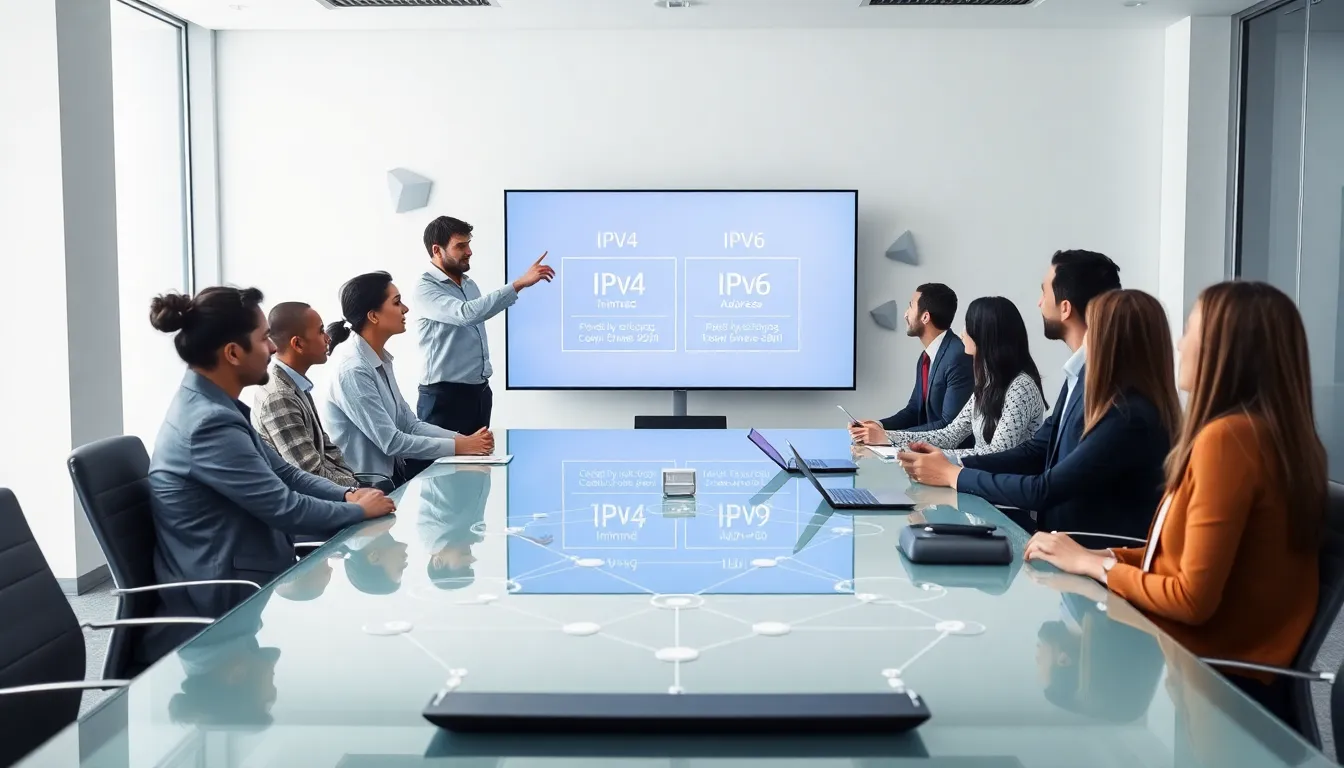Ever found yourself staring at a bunch of numbers and wondered if they were the results of someone calculating the tip for their dinner? Well, brace yourself as we jump into the digital world where numbers like 111.90.150.288 aren’t just random. In fact, they hold the key to understanding how devices communicate over the internet. Stick around: it’s going to be a fun ride as we explore this peculiar IP address and much more.
Table of Contents
ToggleUnderstanding IP Addresses

What Is an IP Address?
An IP address, or Internet Protocol address, is essentially the unique identifier for a device on a network. Think of it as a home address but for your computer. Instead of mail being delivered, data packets zipping around the internet find their way to the right device thanks to these numerical addresses.
Types of IP Addresses
Not all IP addresses wear the same hat. They come in various forms: static and dynamic. Static IPs remain constant, while dynamic ones can change from time to time. Each has its pros and cons depending on the needs of users, especially in businesses where stability is essential.
IPv4 vs. IPv6
In the feast of IP addresses, IPv4 has been the longtime king, serving as the standard for decades. But, with the explosion of internet users, we’ve shifted toward IPv6, which offers a seemingly endless number of addresses. In simple terms, IPv4 maxes out at approximately 4.3 billion unique addresses, while IPv6 can score over 340 undecillion addresses. That’s a lot of devices.
Analyzing 111.90.150.288
Geolocation of 111.90.150.288
Navigating the digital seas, 111.90.150.288 slumbers within the vast oceans of IP spaces. This address points to a specific location, which, when dug into, reveals geographical data such as country, region, and city. Utilizing geolocation services can help determine where this IP is based and even offer nuanced insights into its local network.
Ownership and Hosting Information
Now, let’s flip the page on ownership. Every IP address has an owner, typically an Internet Service Provider (ISP) or a hosting company. For 111.90.150.288, digging deeper can display who claims it, which can be useful for a plethora of reasons, from troubleshooting to tracking down troublesome online activities.
Potential Uses and Misuses
Common Uses of IP Addresses
The utility of IP addresses is vast. They are crucial for routing traffic, providing location-based services, and enabling secure connections through VPNs. Companies often use them to monitor and improve their online services. Plus, they can help tailor the web experience based on user geography. Truly, they are more than just numbers.
Security Concerns and Issues
But, not all stories have a happy ending. One major concern revolves around security. IP addresses can expose users to risks such as hacking, data tracking, and various cyber threats. Knowing how these numbers can be misused underscores the importance of implementing robust cyber hygiene practices.
Privacy Implications of Using Public IPs
Protecting Your IP Address
With great power comes great responsibility. Utilizing a public IP address opens the door to potential privacy concerns. It’s wise for users to employ Virtual Private Networks (VPNs) to obscure their address. Stepping into protective measures not only safeguards personal data but also keeps unwanted snoopers at bay.


